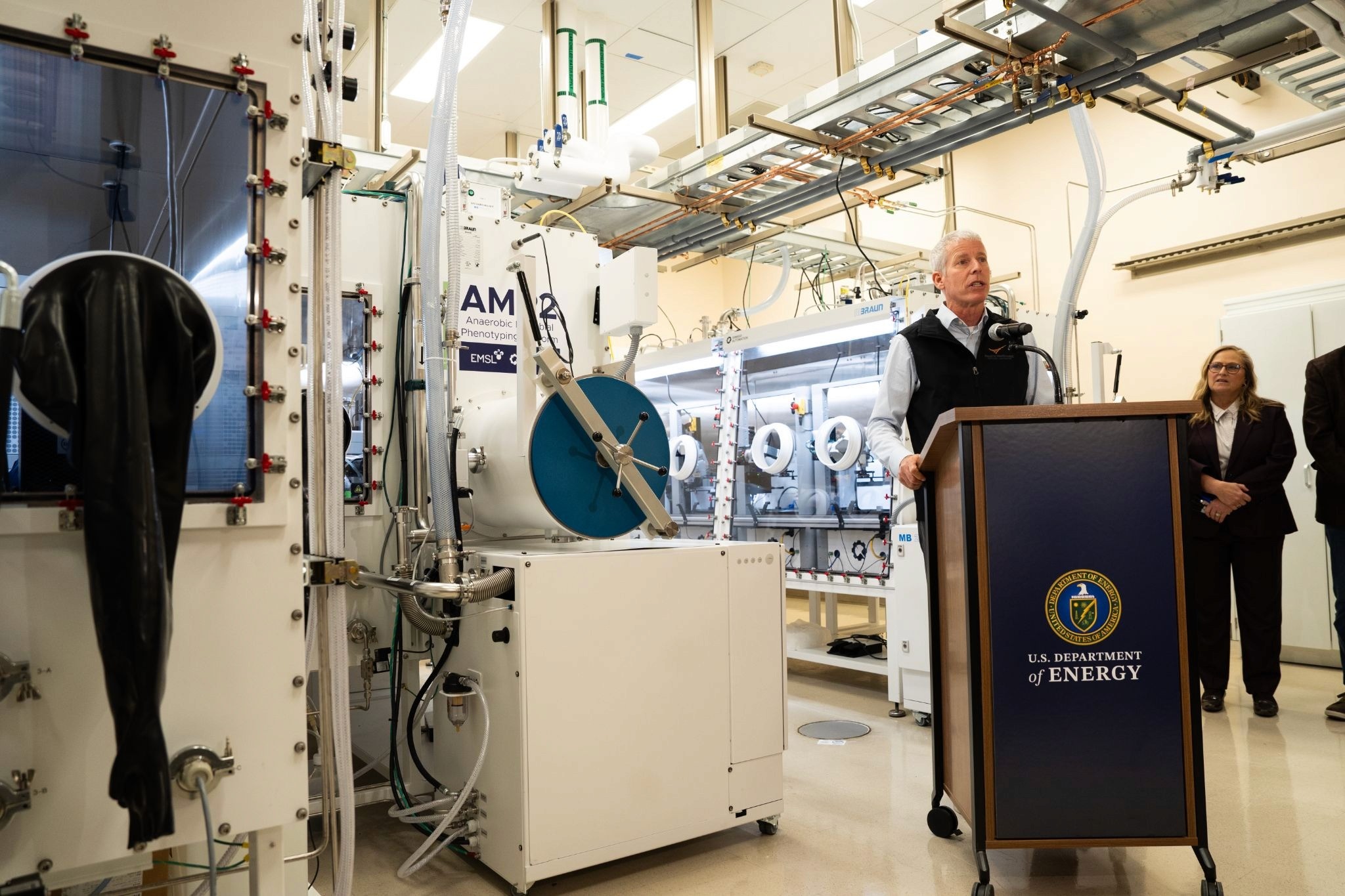A Year in Review: Nobel Laureate Frances Arnold at SynBioBeta 2019
Dec 11, 2019
Frances Arnold, Caltech
2019 has been yet another groundbreaking year for synthetic biology, marked by sustained growth surpassing even the Moore’s Law curve of the silicon microchip boom. From a refined version of CRISPR (prime editing) and improved data storage in DNA to a greater policy focus on synthetic biology and new control of metabolic pathways, the field is accelerating at an ever-increasing rate to catalyze progress in seemingly every arena of life.The 2019 SynBioBeta conference in early October embodied the convergence of the many individuals and groups with stakes in this synthetic biology revolution, hosting academic researchers, biotech innovators, journalists, students, tech titans, political leaders, and others from a multitude of domains. Dr. Frances Arnold, 2018 Nobel Laureate in Chemistry and Professor at the California Institute of Technology, delivered the keynote address.In just thirty short minutes, Arnold presented a compelling overview of “innovation by evolution,” not only regarding her award-winning work on directed evolution of enzymes but also examining the field of synthetic biology as a whole, marveling at the efficiency of nature’s engineering, evaluating connections to the world of silicon, and addressing sustainability.“My interest lies in convincing the biological world to do new chemistry,” she said, “making bonds and catalyzing chemical reactions that are not yet known in biology that will allow us to access the entire world of chemistry that biology doesn’t impact now.”“Can we use evolution to explore chemistry that is entirely new to the biological world?” she challenged the audience. Simply put, the answer is a resounding “yes.” Directed evolution modifies natural chemical pathways within biological cells by drawing upon life -- the biological world’s greatest chemist -- and its number one tool, evolution. Her lab “selectively breeds” proteins with new and specific properties.While this term hails back to Charles Darwin, the concept has been implemented as far back to pre-colonial America with the modification of maize (which has yielded the various forms of corn we have today) and as recently as the creation of dog breeds such as the labradoodle. However, its application in a biochemical sphere has been far more recent, and the resulting possibilities seem infinite. From emphasizing her focus on a sustainable economy (her lab has generated enzymes to facilitate everything from laundry to pharmaceutical development with a smaller environmental footprint) to positing an “Internet of living things,” Arnold’s comprehensive coverage of how this field of study has so quickly advanced and where its trajectory is taking us next marked a fantastic keynote that all were privileged to hear.Since October, Arnold has predictably been quite busy -- speaking at Google Zeitgeist, being honored at the 2019 American Portrait Gala with the Portrait of a Nation prize from the National Science Foundation, and releasing publications on optogenetics, engineering tryptophan (yep, the same one as turkey-tryptophan), developing new functions for heme-binding proteins, and most recently, joining the Board of Directors for Alphabet, Inc. While Arnold’s time may be allocated differently since winning the Nobel Prize, the spirit of what drives her work has been unwavering for decades. We sat down with her for a brief interview during SynBioBeta, and she quickly expressed a special love for academia.“Working with brilliant young people all the time makes it absolutely special,” she said. “The biggest learning experience from my career has been how to build really strong, creative teams, and each day is a highlight -- I enjoy what I do every day.”On what it means to be just the fifth woman ever to win the Nobel Prize in Chemistry, she remarked, “Obviously, it’s pretty cool. But more importantly, there’s a great pipeline of women doing science at the highest level -- so I predict there will be many future Nobels in Chemistry .”Her advice? “The key thing is a respect for science and a respect for fact-based inquiry. More politicians with scientific backgrounds would be great -- we need that in government because science is so important. To young people, go into science. It’s fascinating, it’s the future, and you can use your creativity to do some good for people and the planet.”Regardless of from where or for what the next breakthrough for the Arnold Lab or the field of synthetic biology as a whole, the future is certainly bright as we innovate the evolution of humanity for years to come.


















